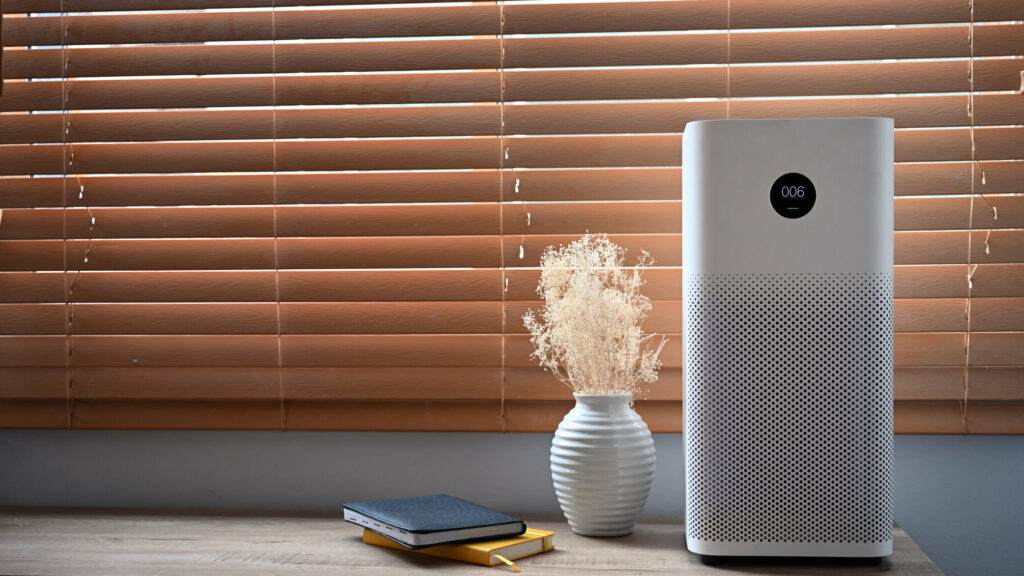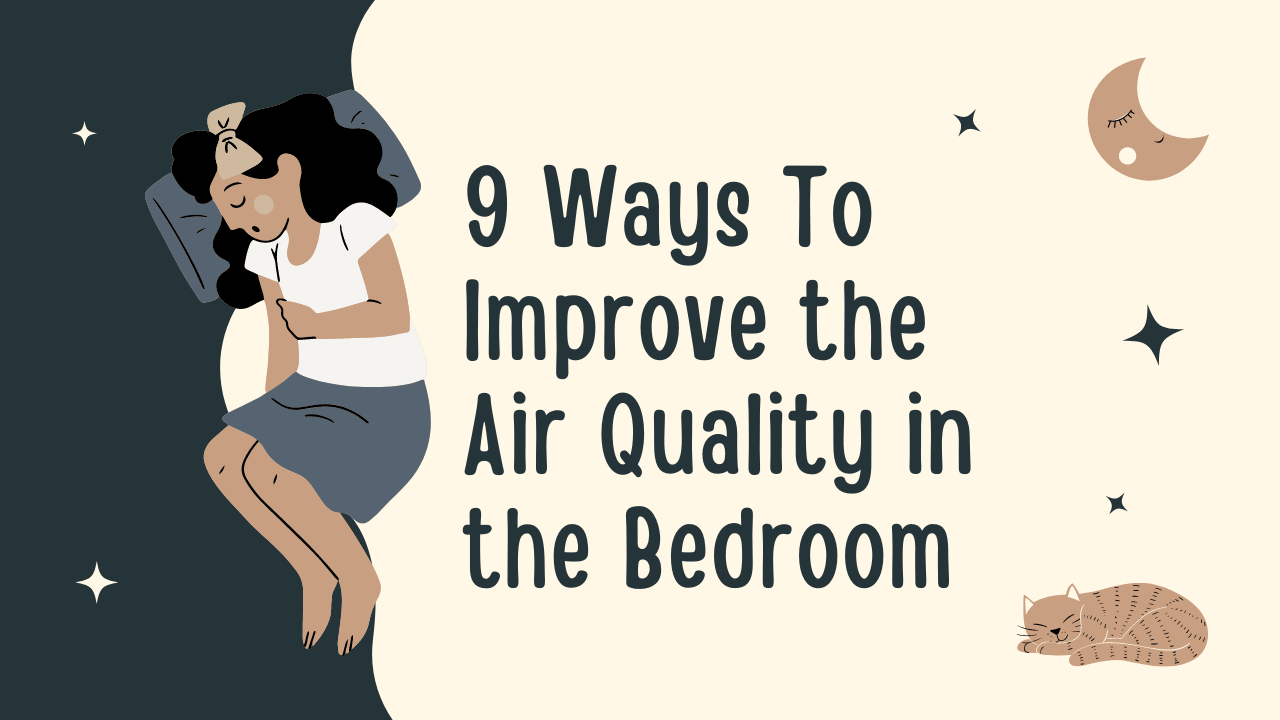Are you trying to figure out ways to improve the air quality in the bedroom because it makes it difficult to sleep?
The quality of the air we breathe has a direct impact on our health and well-being. Poor air quality can cause a range of health problems, from headaches and dizziness to respiratory problems and even cancer.
The bedroom should be a haven for rest and relaxation, but for many people, it’s a place where they spend a lot of time feeling congested and struggling to breathe. Indoor air pollution is a problem that’s often overlooked, but it can seriously impact your health. Improving the indoor air quality in your bedroom is a simple way to reduce exposure to harmful toxins and create a more comfortable sleep environment.
Tips on How to Improve Indoor Air Quality and Reduce Indoor Air Pollution
There are a number of things that can be done to improve the air quality in the bedroom. When it comes to improving the air quality in the bedroom, there are a few things you can do to make a big difference. Here are some tips to get you started:
1. Keep the Bedroom Clean and Free of Clutter
The quality of the air you breathe indoors significantly impacts your health. In fact, the EPA ranks indoor air pollution among the top five environmental health risks. Poor air quality often causes health problems, such as headaches, fatigue, and respiratory infections.
One of the best ways to improve the air quality in your bedroom is to keep it clean and free of clutter. Dust, pollen, and other allergens can accumulate on surfaces, making it difficult to breathe. A cluttered room can also make it difficult to clean, allowing dust and dirt to build up over time.
This will help to reduce dust and other allergens in the air. Not only will this help your sleep quality and overall health, but it will also create a more calm and relaxing environment.
2. Make Your Bed Every Day
This will help reduce the dust and dirt that can accumulate on your sheets and pillowcases.
3. Vacuum And Dust Regularly
Be sure to vacuum under your bed and furniture as well as on top of surfaces.
4. Invest In An Air Purifier

An air purifier can help remove indoor air pollutants like allergens, dust, airborne particles, and pet dander from the air in your bedroom, improving the air quality and helping you to breathe easier. An air purifier can be an especially valuable investment if you have asthma or allergies.
Take some time to research different air purifiers on the market and find the one that best fits your needs. With a little research, you can find an air purifier that will help improve the air quality in your bedroom and create a healthier environment for you to sleep in.
Read Our Guide To The Best Air Purifiers For Bedrooms
Consider the size of the unit
You’ll want to choose an air purifier that is the appropriate size for the room or area you want to use it in.
Consider the features
Some air purifiers come with additional features like ionizers and UV lights.
Read reviews
Before making your final decision, be sure to read online reviews from other consumers. Select an air cleaner with a certified HVAC system.
Talk to an expert
If you’re still not sure which air purifier is right for you, consult with a specialist at your local home improvement store.
5. Open The Windows When Possible
One of the main sources of indoor air pollution is chemicals released by building materials, furniture, and cleaning products. Another source of indoor air pollution is tiny particles emitted by electronic devices like computers and televisions. These particles can build up in the air and contribute to poor air quality.
One way to improve the air quality in your home is to open the windows when possible. This will allow fresh air to circulate and help to remove any pollutants that have built up inside. This will also help to clear out any stale air that may be trapped in the room.
6. Use Natural Cleaners
When it comes to improving the air quality in the bedroom, one of the best things you can do is switch to natural cleaners. This is because many traditional cleaners contain harmful chemicals that can worsen your home’s air quality. Natural cleaners, on the other hand, are much better for the environment and for your health.
7. Avoid Using Strong Fragrances
Strong fragrances can be overpowering and unpleasant, and they can also be a trigger for allergies or asthma. That’s why avoiding using strong fragrances in the bedroom is important. There are a few simple ways to do this:
Use unscented products
Look for products that are labeled “unscented” or “fragrance-free.”
Avoid scented candles
Candles can be a major source of fragrance in the bedroom. Choose unscented candles or opt for a different type of scent-free lighting.
Don’t use air fresheners
Air fresheners can contain strong fragrances that can linger in the air long after they’ve been used. If you need to freshen the air in the bedroom, open a window or door to let in the fresh air.
8. Use The Right Air Conditioning Systems
When it comes to improving indoor air quality in our bedrooms, we often overlook the air conditioning system as a possible source of pollutants. However, your air conditioning system can actually be a major contributor to poor indoor air quality.
9. Select The Right Furniture
When it comes to choosing furniture for the bedroom, many people overlook the impact that different materials can have on the air quality in the room. While the type of furniture you select won’t guarantee perfect air quality, paying attention to the materials can help you create a healthier space.
When it comes to off-gassing, volatile organic compounds (VOCs) are released into the air from certain materials like treated wood, adhesives, plastics, and fabrics. These VOCs can cause health problems like headaches, dizziness, and nausea.
Conclusion
The quality of the air we breathe has a direct impact on our health. Both indoor and outdoor air quality is important. However, it can be polluted with a variety of air pollutants like carbon monoxide, including dust, fumes, and chemicals. Indoor and outdoor air pollution can be the main cause of some diseases and even affect your sleep. Improving the overall air quality in our homes and workplaces is essential to protecting our health and well-being.

